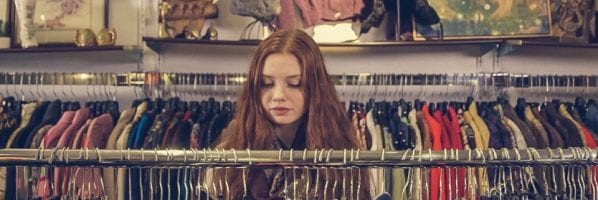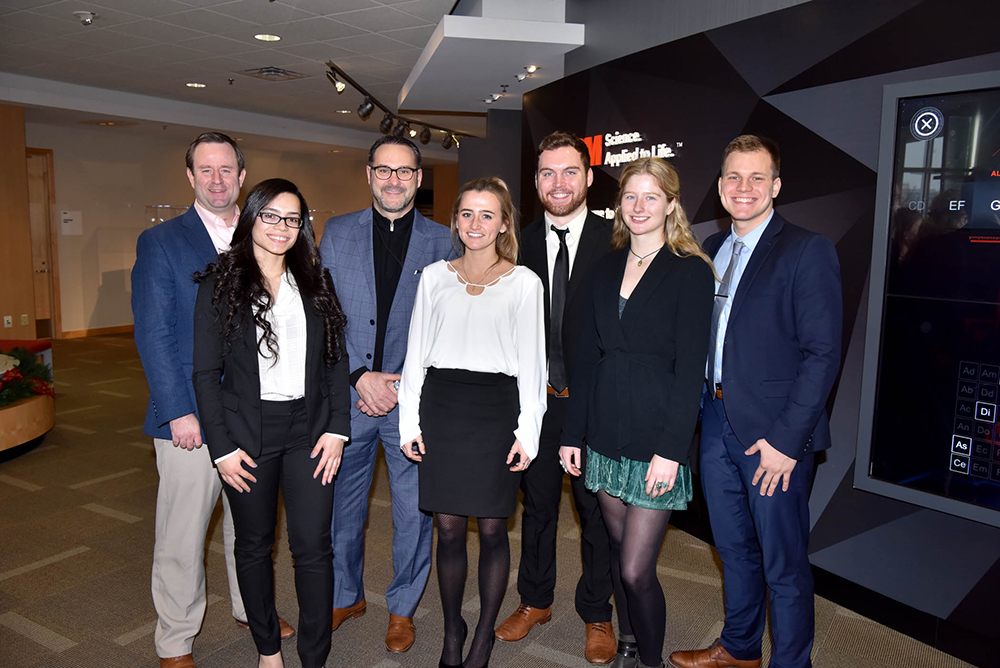Handling the Customer Employee Relationship, According to Northwestern – Chicago News

Let’s explore some of the most interesting stories that have emerged from Chicago business schools this week.
Customers Can Be Jerks. Here’s Why Some Employees Retaliate – Kellogg Insight
Northwestern University Kellogg School of Management Clinical Professor of Management and Organizations Cynthia Wang co-authored new research that seeks to understand the broader implications of employee reactions to unpleasant customers. Do they respond in turn with hostility and try to sabotage the customer or do they turn the other cheek?
Among the extensive psychological research in this area, Wang and her co-authors were drawn to a model known as the social intuitionist model, which argues that moral-decision making is the result of snap judgement and heightened emotion.
“In that heightened emotional state,” Wang explains, “we begin to view problem customers as not worthy of fair treatment—a phenomenon psychologists call ‘devaluation of targets’—which leads employees to see those customers as subhuman.” The reverse, where customers also treat employees poorly, also rang true.
Wang adds:
“These decisions are very quick and implicit. We don’t necessarily notice them going on.”
You can read more about the research here.
Brexit Clouded by Uncertainty, Says Gies Professor – Gies School of Business News
United Kingdom Prime Minister Theresa May canceled the House of Commons Brexit vote that was scheduled for December 11, putting a Brexit solution on hold for now, leaving the future of UK’s relationship with the European Union up in the air.
The UK is still scheduled to leave the EU on March 29, 2019 and parliament needs to strike a deal to make the departure as smooth as possible. Major challenges include finding a solution for the border between Northern Ireland and the Republic of Ireland, along with dealing with the consequences of leaving the European Union for businesses and jobs in both the United States and the UK.
Candace Martinez, University of Illinois Gies College of Business Clinical Assistant Professor of Business Administration, remarks, “If the UK cannot arrive at a solution to the Irish border quandary, a ‘backstop’ approach is a last resort,” noting that Northern Ireland voted to remain in the EU on the June 2016 referendum.
Martinez adds, “Uncertainties are everywhere. This is uncharted waters, to be sure.”
You can read more from the interview with Martinez here.
Sales Class Challenges Students to Provide Creative Solutions for Nonprofits – DePaul Business News & Events
As part of the Marketing 386: Social Impact Sales course at the DePaul University Driehaus College of Business Center for Sales Leadership, students are partnered with a local nonprofit, providing marketing and sales advice. “After working in teams, students present their business plans to the nonprofit toward the end of the quarter. A winning team is then selected by Drehmer and the non-profit to present their creative solutions in front of executives at 3M in St. Paul, Minn.,” according to DePaul University’s Jaclyn Lansbery.

(Left to right) Center for Sales Leadership Executive-in-Residence Charlie Drehmer; Isaly Varela; Mark McLellan, national channel operations manager at 3M; Dominique DiVito; Gavin Hultgren; Ava Kilborn and Mike Nowak / Photo via business.depaul.edu
Charles Drehmer (BS `03, MBA `04, MA `16, Ph.D. `17), who teaches the course, says: “The Social Impact Sales class is extremely rewarding for both me and the students in that we truly make difference in people’s lives. The class is as real as it gets, where students meet with the client to discover their needs and wants, design and execute a market research study and then present their recommendations to the client. Not only does the project provide students a hands-on real-world experience, they also get to make a positive impact on underserved communities.”
Last fall, students worked with Chicago Community ToolBank, providing a marketing and sales strategy. “The project focused on a new program, Corporate Days of Service, which offers private companies a unique team-bonding experience where they use the ToolBank’s tools and facilities to build furniture that is donated to a nonprofit organization of their choice. Students also worked together to build bookshelves that were donated so they better understood what new service would entail,” Lansbery writes.
Isaly Varela, an undergraduate business student in the program, adds, “The class has given us the skills to think critically about marketing and sales along with being comfortable with ourselves.
To read more about the program, head on over to the official DePaul Univesity website.
First Impressions: No Need to Panic! – Chicago News

Let’s explore some of the more interesting stories that have emerged from Chicago business schools this week.
The Personal Statement: No Need to Panic! – Inside Kellstadt
First impressions are stressful across the board, which can make the impression you attach to your business school application all the more nerve-wracking. Current DePaul Kellstadt MBA student Kristen Hall took to the official Kellstadt blog to offer some insights into crafting the perfect personal statement.
In “The Personal Statement: No Need to Panic!” she writes, “My advice to prospective students writing their personal statements would be to share what inspired you to apply to Kellstadt. Each applicant has a different story and connection to the program and sharing your own “Aha!” moment is a way to set yourself apart from other applications.”
You can read Hall’s entire piece here.
How a Genetically Modified Soybean Helped Modernize an Economy – Kellogg Insight
Northwestern University Kellogg School of Management Associate Professor of Finance Jacopo Ponticelli recently co-authored new research that illuminates how “countries develop from agrarian economies into more industrialized ones” by examining the impact of Monsanto’s genetically modified Roundup Ready soybean seed (a.k.a. the Maradona soy) on Brazilian agriculture in the early 2000s.
The research, which was co-authored by University of Zurich economist Bruno Caprettini and Paula Bustos of Spain’s Center for Monetary and Financial Studies, found that “the seed freed up farm laborers to find other jobs, allowing Brazil’s industrial sector to grow, [and] helped farmers put more money in the bank, which led to urban centers getting access to cheaper credit, allowing banks to finance more manufacturing and services firms.”
Ponticelli suggests that Brazil’s example illustrates how “bumps in agricultural productivity can ripple through an entire economy, not only bolstering the manufacturing sector, but exporting fresh capital to the urban centers where new industries tend to grow.”
You can find the full article here.
Mendoza Finance Prof Wins Research Award for Linking Electricity Usage with Stock Returns – Mendoza Ideas & News
Notre Dame University Mendoza College of Business Professor of Finance Zhi Da received the Journal of Financial and Quantitative Analysis’ 2017 William F.Sharpe Award for Scholarship in Financial Research this past May in recognition of his innovative research, which finds that the “growth rate of industrial electricity usage predicts future stock returns for up to one year.”
According to Professor Da’s paper, “industrial electricity usage tracks the output of the most cyclical sectors. So high rate of growth for industrial electricity usage today—indicating an increase in production due to a company’s expectation of increased sales — predicts low stock returns in the future, consistent with a principle called the countercyclical risk premium, [which] states that the market premium tends to run counter to the business cycle.
According to the article, “The Sharpe Award is intended to foster excellence in financial research. Recipients receive a $5,000 prize for the best article published each year in the JFQA.”
You can find more about the reward and Da’s work here.
The Wells Fargo Scandal and a Pattern of Deceit – Chicago News

Let’s explore some of the most interesting stories that have emerged from Chicago business schools this week.
What Makes Deceit Such a Hard Habit to Break? – Kellogg Insights
New research from Northwestern University’s Kellogg School of Management‘s management and organizations department reveals why the Wells Fargo’s and Bernie Madoff’s of the world often find themselves in cycles of deceit and misconduct.
“Because morally questionable behavior is uncomfortable, people don’t want to take responsibility for it,” explains assistant professor Maryam Kouchaki, who, along with assistant professor Nour Kteily and associate professor Adam Waytz, explore what they dub a cycle of “self-dehumanization.”
It’s a process where “people subtly adjust their self-image and begin to view themselves as possessing fewer of the human traits that would curb that bad behavior. They, themselves, aren’t to blame, this line of thinking goes—they’re just not capable of behaving any better.”
You can learn more about the trio’s research here.
Business Students Develop Sponsorship Proposals for Special Olympics – Kellstadt Business Blog
As part of DePaul’s Sports Management faculty director Andy Clark’s winter quarter sports sponsorship marketing course, Kellstadt Graduate School of Business MBA students collaborated with Arena Partners on “attendance-driving ideas and sponsorship strategies” for the Special Olympics’ 50th Anniversary Celebration set to take place in Chicago this coming July.
At one point, the class hosted Kellstadt alum, DePaul Board of Trustees member, and Special Olympics of Illinois Board Chair Karen Atwood MBA ’82, who spoke of the potential impact that Kellstadt MBAs can have on their communities.
“I always think when you can see the impact that your actions, your ideas and your support bring to the larger community, the more it reinforces why the Vincentian values are so important.”
You can find out more about the Special Olympics project here.
Solutions Summit – Quinlan School of Business
The Loyola’s Quinlan School of Business Leadership Hub just announced its first annual Solutions Summit; a networking extravaganza designed especially for vice presidents, directors, and managers; supply chain leaders; and family-owned businesses.
This year’s inaugural event will host Alberto Ruocco, a Senior Executive Partner at cybersecurity leader Gartner; Reynolds VP of Category Management Nancy Bedwell; and Susan Ramonat, CEO of Spiritus, a Blockchain leader. This year’s event will be held on October 9 at the Schreiber Center on 16 E. Pearson St., Chicago.
To register for this year’s Solutions Summit, click here.
The Top Consulting And Strategic Management Chicago MBA Programs

While industries such as investment banking may be attracting fewer MBAs, that’s not the case for consulting. Year-after-year it continues to be the top draw for MBA graduates. The 2015 Prospective Student Survey conducted by the Graduate Management Admissions Council (GMAC) revealed that a job in consulting services or management consulting upon graduation topped the list for both millennial (41 percent) and Gen X (27 percent) respondents. Continue reading…
Top Entrepreneurship MBAs in Chicago

Chicago is a hot spot for entrepreneurs and startups. Not only is it the largest city in the Midwest, but it also offers a ton of great resources for those starting a business, including 1871 and Techstars.
1871 is Chicago’s center for technology and entrepreneurship. Today it is home to more than 400 early-stage startups. Techstars is an accelerator program that has helped over 750 companies with more than $2 billion in funding.
But it’s not just the city that offers resources to entrepreneurs—it’s also the universities. Chicago is home to a wealth of top-notch business schools, and for MBAs, there are a few programs that stand out.
DePaul Career Center Releases Kellstadt Graduate Employment Info

Good news if you’re a student at DePaul’s Kellstadt Graduate School of Business: According to the 2015 Postgraduate Outcomes Summary released by the DePaul Career Center, 94 percent of the school’s 2014-15 graduates are either employed, continuing their education or not seeking employment. Continue reading…
